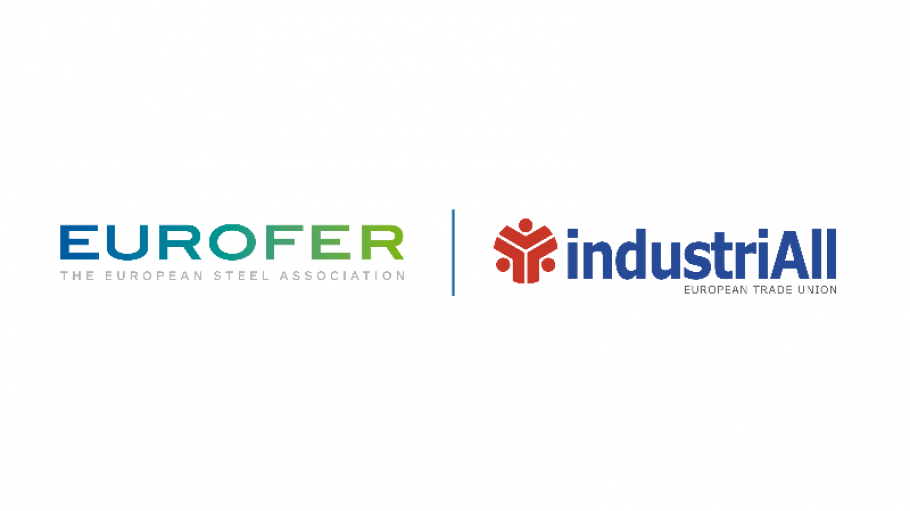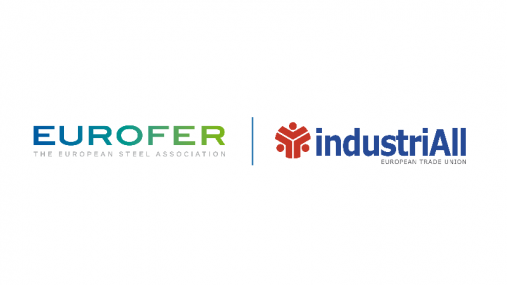
Press releases » EU steel safeguard decision could nip European steel recovery in the bud
EU steel safeguard decision could nip European steel recovery in the bud
Downloads and links
Recent updates

Brussels, 30 June 2020 – IndustriAll European Trade Union and the European Steel Association (EUROFER) have reiterated their deep disappointment at the EU’s decision to not adjust the tariff-free import quota for steel in the light of the collapse in EU steel demand. The steel sector had called for significant, short-term changes to the EU steel safeguards to preserve the industry during this pandemic-induced economic downturn.
“This is the worst crisis we have seen in decades, and it represents a failure to exploit the safeguard tool to the fullest possible extent. This may risk thousands of jobs and could cost taxpayers billions if the ensuing closures of steel facilities throughout Europe cannot be prevented by other measures”, said Luis Colunga, Deputy General Secretary of IndustriAll Europe.
“We need an emergency meeting with EU policymakers. Together we can work on solutions to rescue the strategically vital European steel sector. Only a robust domestic industry can reliably contribute to completing the circular economy, continue the transition to carbon neutrality, and ensure the welfare of Europe’s people”, Mr Colunga added.
At the Foreign Affairs Council meeting on 9 June, several Member States had urged the Commission to make adjustments to the safeguard review proposal, though they stopped short of calling for the drastic quota reduction and elimination of unused quotas requested by the steel industry. Only minor changes have been made to the proposals following Member State pressure, these are not enough in the current changed circumstances, according to the industry.
“We have seen a collapse of 50% in EU steel demand since March, but the tariff-free import quota has been further raised. Objectively, this makes no sense. We had expected a clear decision for European industry. This did not happen. The resulting marginal technical changes may help one or other steel product group but most of our industry has been left in the cold”, said Axel Eggert, Director General of EUROFER.
“We are ready and willing to sit down with policy makers with an open mind in order to develop a way forward for our sector and the downstream sectors it services”, emphasised Mr Eggert. “The result of the revised safeguards is a major upset, and the EU must still find ways and means to avoid further closures and job losses in the European steel sector”.
Contact
Charles de Lusignan, Spokesman & Head of Communications, +32 2 738 79 35, charles@eurofer.eu
Elspeth Hathaway, Steel Policy Adviser, +32 473 865 884, elspeth.hathaway@industriall-europe.eu
About the European Steel Association (EUROFER)
EUROFER AISBL is located in Brussels and was founded in 1976. It represents the entirety of steel production in the European Union. EUROFER members are steel companies and national steel federations throughout the EU. The major steel companies and national steel federations in Switzerland and Turkey are associate members.
The European Steel Association is recorded in the EU transparency register: 93038071152-83.
About IndustriAll European Trade Union
IndustriAll European Trade Union is the federation of independent and democratic trade unions representing workers in the metal, chemical, energy, mining, textile, clothing and footwear sectors and related industries and activities. IndustriAll Europe represents 7 million working men and women united within 180 national trade union affiliates in 38 European countries.

Download files or visit links related to this content
Brussels, 20 February 2026 – EU steel exports to the United States fell by 30% in the second half of 2025 compared to the same period in 2024, after the imposition of 50% tariffs according to new Eurostat data. The expansion of the U.S. tariff regime to include downstream steel-intensive products, such as machinery and equipment, is expected to amplify its impact on both EU steel producers and their customers. The European Steel Association (EUROFER) said the figures underscore the need for any EU-US trade agreement to be fair, balanced and enforceable.
Joint Industry Statement
Brussels, 11 February 2026 - The European Steel Association (EUROFER) has backed a call to action adopted by European companies and industries in Antwerp today, which includes a demand on the EU to take urgent action to bring electricity prices down as a condition for Europe’s industrial drive, competitiveness and economic resilience.